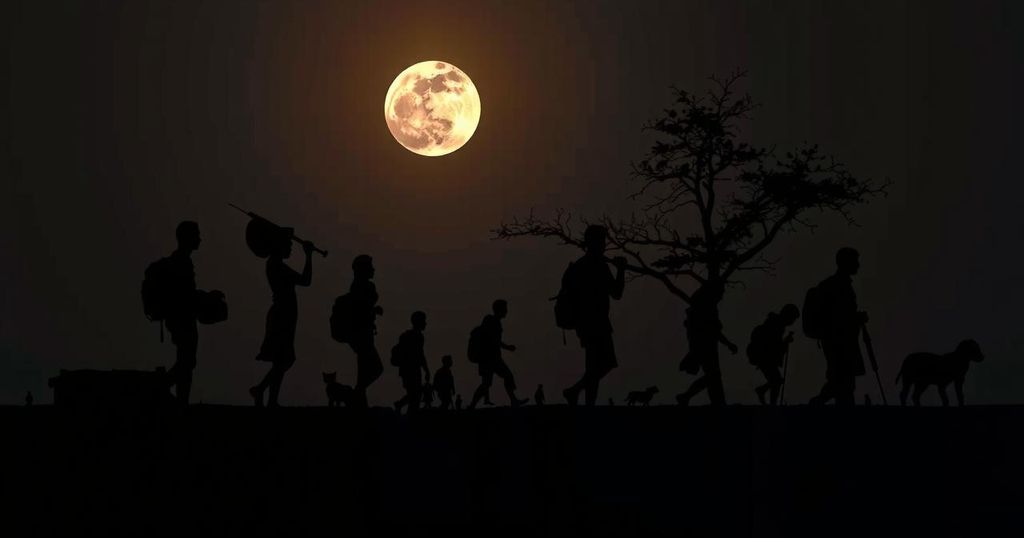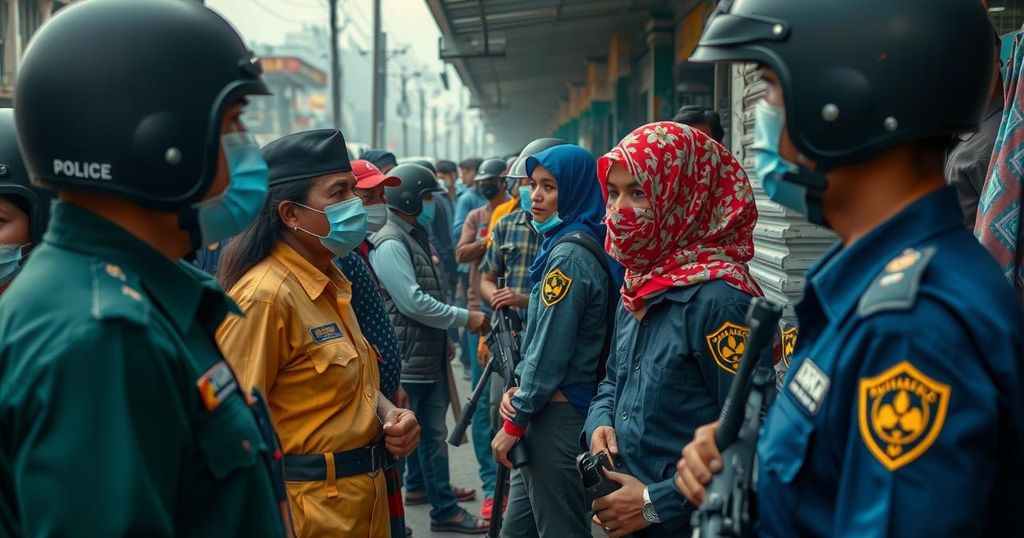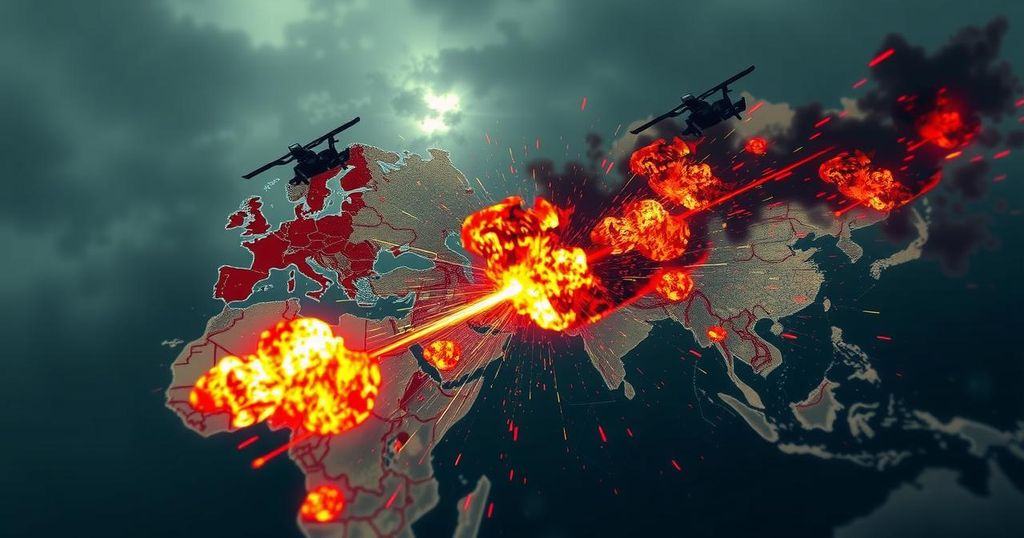Escalating Conflict in Myanmar Puts Rohingya Civilians at Risk
Summary
Increased numbers of injured Rohingya are arriving in Bangladesh due to intensified military conflict in Myanmar’s Rakhine State, according to Doctors Without Borders. The organization reported that more than 39 people were treated for war-related injuries within a short period, with many being women and children. MSF expresses urgent need for the protection of civilians amid the ongoing violence, exacerbating the humanitarian crisis faced by the Rohingya.
An influx of injured Rohingya individuals is arriving in Bangladesh from Myanmar, due to the intensifying conflict in western Rakhine State between the military and the Arakan Army (AA). According to the international medical organization, Doctors Without Borders (MSF), there has been a notable increase in conflict-related injuries, prompting urgent calls for the protection of civilians in the region. In the four days preceding August 7, MSF reported treating 39 individuals for serious injuries, including gunshot wounds and injuries resulting from mortar shelling, with over 40 percent of the injured being women and children. Staff members at MSF’s clinic indicated that the severity of injuries encountered had not been witnessed in a year. Orla Murphy, MSF’s country representative in Bangladesh, expressed concern regarding the ongoing violent conflict, stating, “Considering the rise in the number of wounded Rohingya patients crossing from Myanmar in recent days, and the nature of the injuries our teams are treating, we are becoming increasingly concerned about the impact of the conflict on Rohingya people. It is clear that safe space for civilians in Myanmar is shrinking more each day, with people caught up in the ongoing fighting and forced to make perilous journeys to Bangladesh to seek safety.” The plight of the Rohingya, a predominantly Muslim ethnic group, has been exacerbated by longstanding discrimination and violence in Rakhine. Following a brutal military crackdown in 2017 that drove over 750,000 Rohingya into Bangladesh, conditions remain dire for those who have been forced to stay, predominantly living in restricted camps. Recently, conflict has escalated further as the AA, which claims to represent Rakhine’s Buddhist majority, has joined forces opposing the military, which gained power in a coup in February 2021. In late June, the Burmese Rohingya Organisation UK (BROUK) warned of an “intensifying genocide” in the region as violent clashes intensified near Maungdaw, a town adjacent to the Bangladeshi border. Reports from Rohingya seeking assistance in Bangladesh describe devastating circumstances, detailing experiences of witnessing bombings and numerous fatalities while attempting to flee. There have also been horrific individual incidents, such as a recent drone strike near Maungdaw that resulted in the deaths of several individuals awaiting passage into Bangladesh, including a pregnant woman and her young child. The Myanmar military and the AA have reportedly traded blame for these attacks. MSF has called for immediate measures to safeguard civilians, stating, “People must not come under indiscriminate attack and should be allowed to leave for safer areas, while all those in need of vital medical care should have unhindered and sustained access to medical facilities.”
The Rohingya are a stateless Muslim minority group in Myanmar, predominantly residing in the Rakhine State. Their plight has included systemic discrimination, ethnic violence, and large-scale military actions leading to mass displacement. In 2017, a brutal crackdown forced a significant number of the Rohingya to flee to neighboring Bangladesh, where they currently face dire humanitarian conditions in refugee camps. The current conflict has escalated with the emergence of the Arakan Army (AA), which seeks autonomy for the Rakhine state’s Buddhist majority and is actively fighting against the Myanmar military, whose control was solidified following a coup in February 2021. Health services have been compromised in conflict-affected regions, further deteriorating the already critical situation for civilians and refugees. Amidst the rising violence, medical organizations like MSF are urgently advocating for the safety and well-being of affected populations while stressing the need for immediate humanitarian intervention.
In summary, the situation for the Rohingya in Myanmar is deteriorating due to escalating violence and conflict, leading to an alarming rise in casualties and a desperate need for safety among civilians. Medical organizations highlight the urgent need for protective measures to be instituted for those fleeing violence and seeking refuge in Bangladesh. The international community must respond to the humanitarian crisis, given the history of discrimination and violence faced by the Rohingya. Continued advocacy for civil protection and medical assistance remains critical to mitigate the growing impact of this conflict on vulnerable populations.
Original Source: www.aljazeera.com








Post Comment